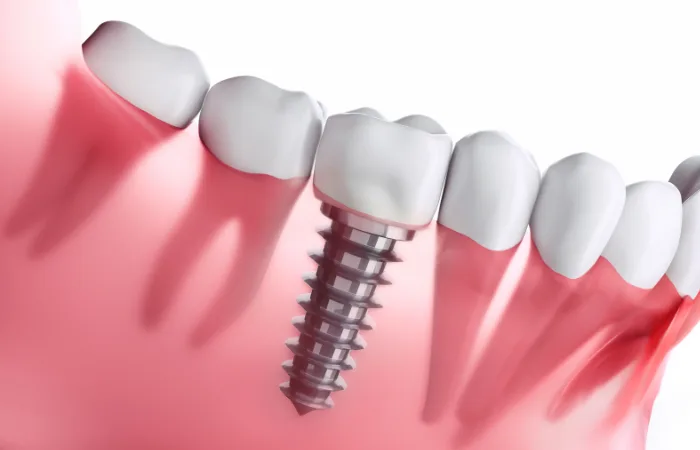
When a tooth is lost, addressing the gap becomes a priority for many individuals seeking to restore their smile’s function and appearance. Dental implants present a modern solution for tooth replacement. A dental implant is a surgical component that interfaces with the bone of the jaw or skull to support a dental prosthesis such as a crown, bridge, or denture. Here is more information about the benefits of dental implants:
Substitutes a Tooth Root
A dental implant is a small post, and it is typically made of titanium. Because it is surgically placed into the jawbone beneath the gum line, it provides a stable foundation for a replacement tooth. This allows a dentist to mount a new tooth onto that firm base.
Dental implants improve oral functionality by allowing you to chew and speak with ease. While dental implants require proper care, they are a durable solution, and with proper maintenance, they can serve as an effective alternative. Overall, their ability to fuse with the jawbone makes them a practical choice for individuals seeking a permanent replacement.
Replaces Teeth
Implants provide a base for single-tooth replacements. When a person is missing one tooth, an implant can fill the space, and it does so without affecting adjacent teeth. This method, by maintaining the structure of neighboring healthy teeth, helps promote overall dental stability.
Dental professionals also use implants for multiple teeth. If you are missing several teeth in a row, a few strategically placed implants might support a fixed bridge. This approach provides a secure alternative to a removable partial denture, and it offers added stability and comfort.
Full arch replacement is another application for this technology. An entire arch of teeth in the upper or lower jaw can be replaced with a full bridge or denture that attaches to a number of implants. This provides a fixed solution, and it often feels more natural than a conventional denture.
Stimulates Bone Growth
Jawbone mass can diminish in the area where a tooth is missing. The body may begin to reabsorb the bone material, so a dental implant can help mitigate this process. An implant integrates with the jawbone through osseointegration, and this process provides a stimulus that encourages bone maintenance. This not only helps preserve the structure of the jaw but also supports the surrounding teeth, maintaining overall oral health.
Supports Jaw
An implant helps maintain the natural shape of your face, and it also supports your smile. By preventing bone deterioration, implants provide foundational support for facial structures. This structural integrity contributes to a more youthful appearance and a healthier jaw. Maintaining this support helps with:
- Preserving the jawbone’s structure
- Supporting facial tissues
- Distributing bite forces evenly
Get Dental Implants Today
Dental implants offer a structured approach to tooth replacement by substituting the root and supporting the jaw. They serve as a foundation for single or multiple replacement teeth, which helps maintain bone structure. To find out if this treatment is a suitable option for you, schedule a consultation with a dental professional to discuss your specific needs.
